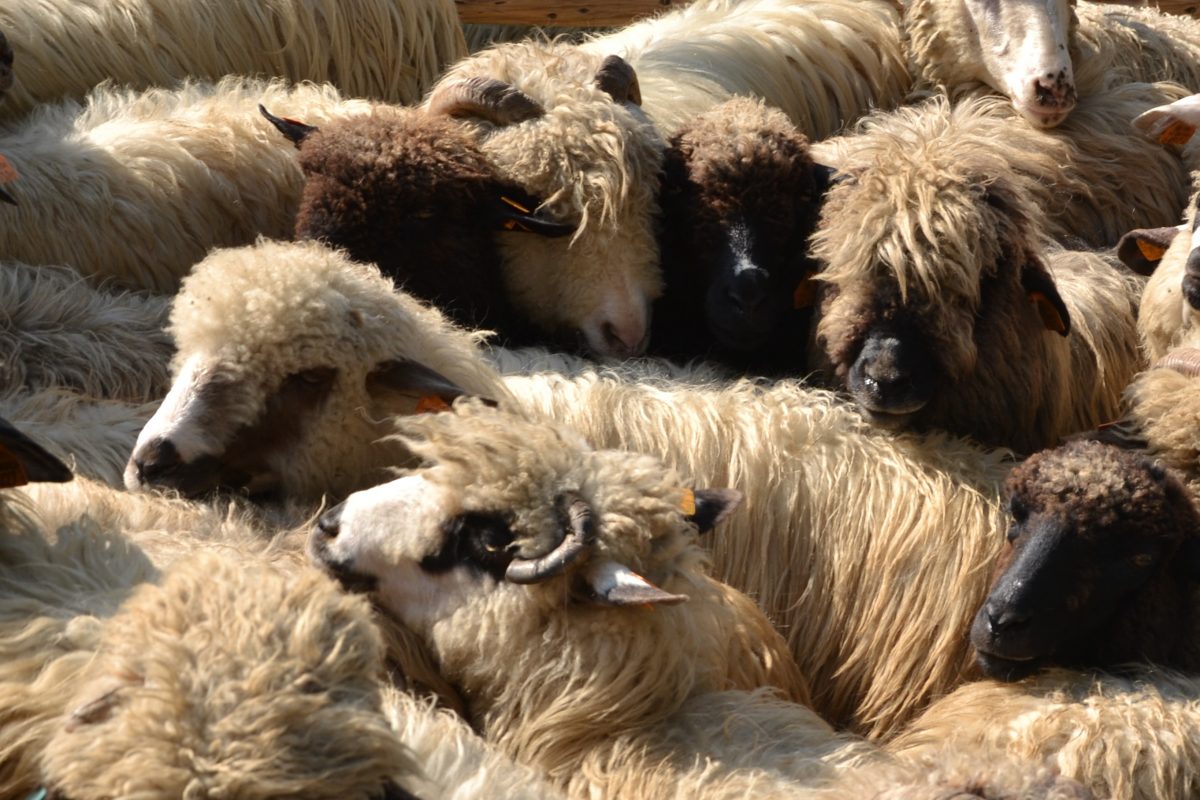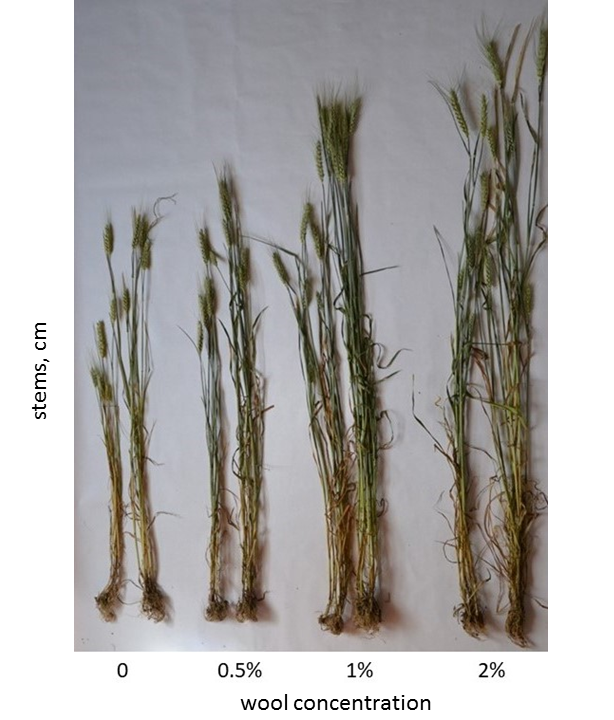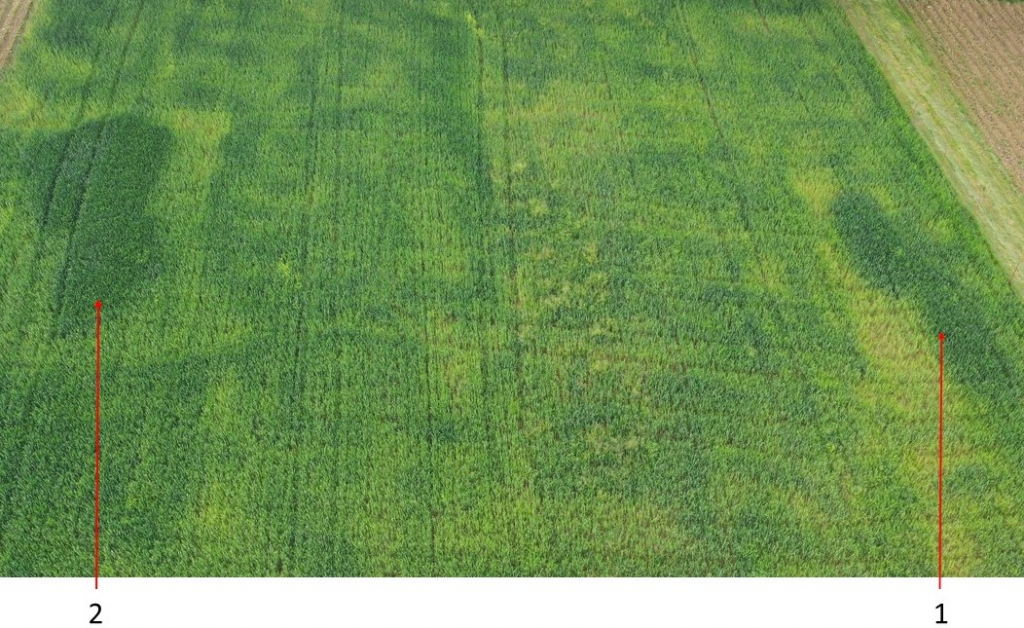Winter wheat + wool pellets work well

It turns out that Polish mountain sheep wool can be successfully used as a nitrogen-rich, organic fertilizer in organic farming. This enables utilization of coarse wool, which is not suitable for textile processing, to be used and lead to zero-waste from wool shearing.
“Utilisation of waste wool from mountain sheep as fertiliser in winter wheat cultivation” is the title of an study from the University of Bielsko-Biala published in the Journal of Natural Fibers, Volume 20 Issue 2. Authors are all part of the WOOLUME project, Jan Broda, Monika Rom, Andrzej Gawlowski and Katarzyna Kobiela-Mendrek.
Coarse wool obtained from mountain sheep has low economic value and is treated as a troublesome by-product of sheep farming. To find ways to utilize it, wool deemed as waste was separated from the better-quality wool during sheep shearing, and used in experiments as a fertilizer in winter wheat cultivation.
During the preliminary tests, it was found that un-scoured wool did not contain excessive amounts of heavy metals or environmentally problematic contaminations, and could therefor safely be used as fertilizer. After this was established, the raw wool was cut into shorter segments and mixed with the soil, and how this influenced winter wheat growth was examined during two seasons.
Simultaneously, the progress of wool biodegradation and the nitrogen content in the soil were analyzed. It was found that, during the growth period, nitrogen compounds are slowly released into the ground, and the content of nitrogen in the soil was closely correlated with the progress of wool biodegradation.

Released nitrogen thus positively impacts wheat growth in various stages, which is manifested by higher tillering degree, more intense leaf color, higher stems and finally, greater yield. Wool added into the soil reveals its positive influence on wheat development up to two harvests. Mountain sheep wool can be successfully used as a nitrogen-rich, organic fertilizer in organic farming. This enables utilization of coarse wool, which is not suitable for textile processing, according to the zero-waste strategy.

Read the full article in Journal of Natural Fibers here (tandfonline.com).